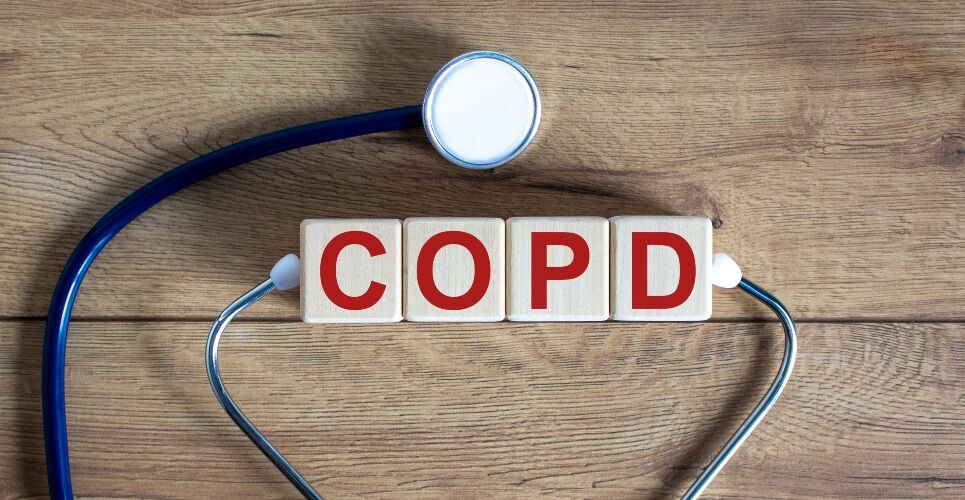The rate of exacerbations in COPD patients with type 2 inflammation is lowered by treatment with dupilumab, according to the findings of a recent randomised, placebo trial.
Patients with chronic obstructive pulmonary disease (COPD) and type 2 inflammation experience a lower annualised rate of moderate to severe disease exacerbations when dupilumab is added to standard triple therapy, the BOREAS clinical trial group found.
Published in the New England Journal of Medicine, the study looked at COPD patients with type 2 inflammation, based on an elevated eosinophil count (≥300 cells/µL), who were in receipt of standard triple therapy. They were randomised them to either dupilumab 300 mg or placebo, given subcutaneously once every two weeks.
The primary endpoint was the annualised rate of moderate or severe exacerbations of COPD. Secondary outcomes included the change in the prebronchodilator FEV1 and the St. George’s Respiratory Questionnaire (SGRQ) for which lower scores indicated a better quality of life. In addition, the Evaluating Respiratory Symptoms in COPD (E-RS–COPD) scale was used, with, again, lower scores indicative of less severe symptoms.
Exacerbation rates and use of dupilumab
A total of 939 patients were included and randomised to either dupilumab (468) or placebo. The mean baseline absolute blood eosinophil count was 401.
The annualised rate of moderate or severe exacerbations was 0.78 (95% CI 0.64 – 0.93) for those given dupilumab and 1.10 (95% CI 0.93 to 1.30) with placebo (rate ratio, RR = 0.70, 95% CI 0.58 to 0.86, p < 0.001).
For the secondary outcomes, the prebronchodilator FEV1 increased from baseline to week 12 by a mean of 160 ml with dupilumab and 77 ml with placebo (p < 0.001) and this difference was sustained through to week 52. Similarly, both the SGRQ and E-RS–COPD scores were significantly lower in those receiving dupilumab at week 52.
The authors concluded that the use of dupilumab in COPD patients with a type 2 inflammation phenotype, experience a lower annualised rate of moderate to severe exacerbations, improved quality of life and better lung function.
COPD exacerbations in context
COPD exacerbations are linked to an accelerated decline in lung function, especially in patients with eosinophil counts greater than 350 cells/µL and not using inhaled corticosteroids.
Type 2 inflammation is present in a sub-set of COPD patients, with one study finding a prevalence of 37%, and such individuals show a better response to systemic corticosteroids such as prednisolone. Type 2 inflammation is characterised by increased eosinophil counts together with elevated levels of various interleukins including interleukin-5, interleukin-4 and interleukin-13.
Monoclonal antibody treatment targeting interleukin-5 with a view to reducing disease exacerbations has, to date, produced mixed results. For instance, use of benralizumab was not associated with a lower annualised rate of COPD exacerbations. In contrast, treatment with mepolizumab, did lower the annual rate of moderate or severe exacerbations. An alternative, yet untested therapeutic approach, is the use of dupilumab, which blocks two other interleukins elevated in those with the type 2 inflammation phenotype, namely, interleukin-4 and 13.
